Explore All
BROWSE BY CATEGORY
Interior
Exterior
Home Essentials
Homeowner Tools
Blogs & Guides
Find a Pro
Book Your Appointment Now
Home Essentials
About Renovize Home
Explore All
BROWSE BY CATEGORY
Interior
Exterior
Home Essentials
Homeowner Tools
Blogs & Guides
Find a Pro
Book Your Appointment Now
Home Essentials
About Renovize Home
Last Updated on June 15, 2025
If you are a homeowner, there is no doubt that you rely heavily on your HVAC system to keep your home comfortable and cozy year-round. However, like any mechanical system, HVAC systems can experience issues over time and may require installation, repair, or even replacement services. In this comprehensive guide, we will take a closer look at HVAC systems, the importance of regular maintenance, the process of installation, troubleshooting common problems, and the different types of repair services available.
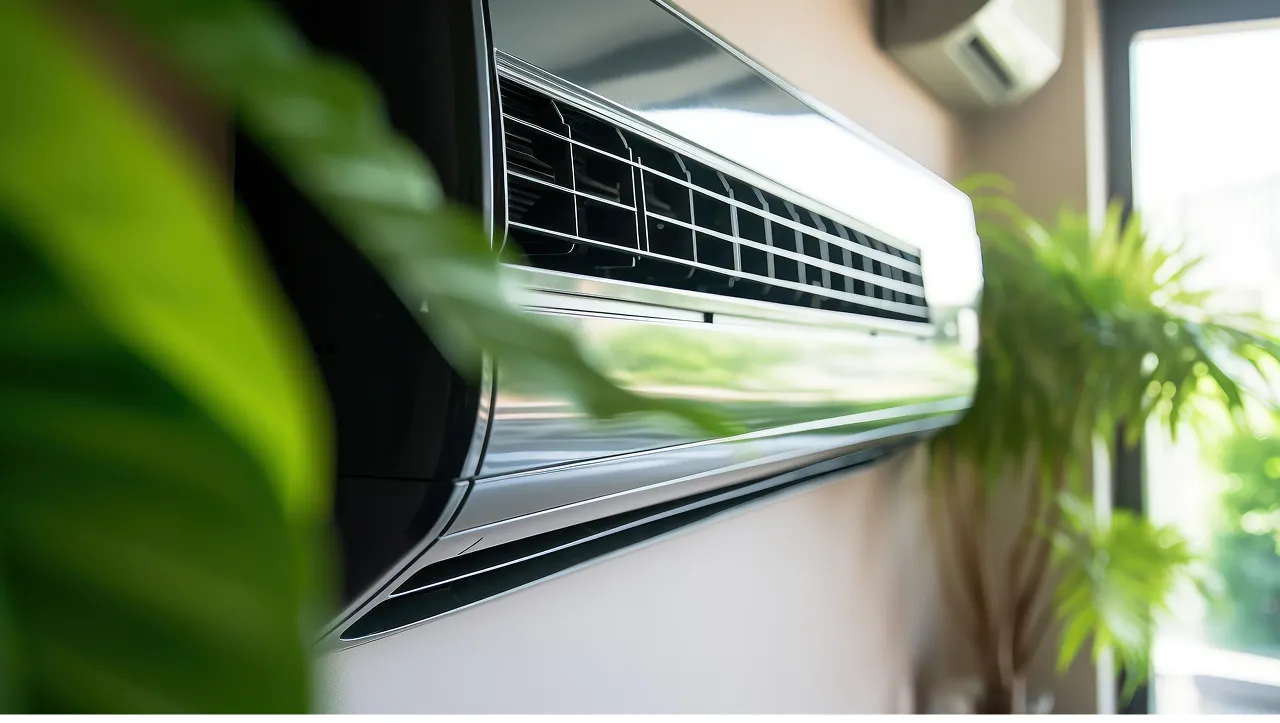
Table of Contents
Understanding the Basics of HVAC Systems
Importance of Regular HVAC Maintenance
Comprehensive Guide to HVAC Installation
Troubleshooting Common HVAC Problems
HVAC Repair Services
Choosing the Right HVAC Project Type and Cost-Effectiveness
Before diving into the world of HVAC installation and repair, it is essential to have a basic understanding of the components and functioning of these systems.
HVAC, which stands for Heating, Ventilation, and Air Conditioning, is a technology used to provide thermal comfort and acceptable indoor air quality. It is a crucial aspect of modern living, ensuring that we stay warm during the winter and cool during the summer.
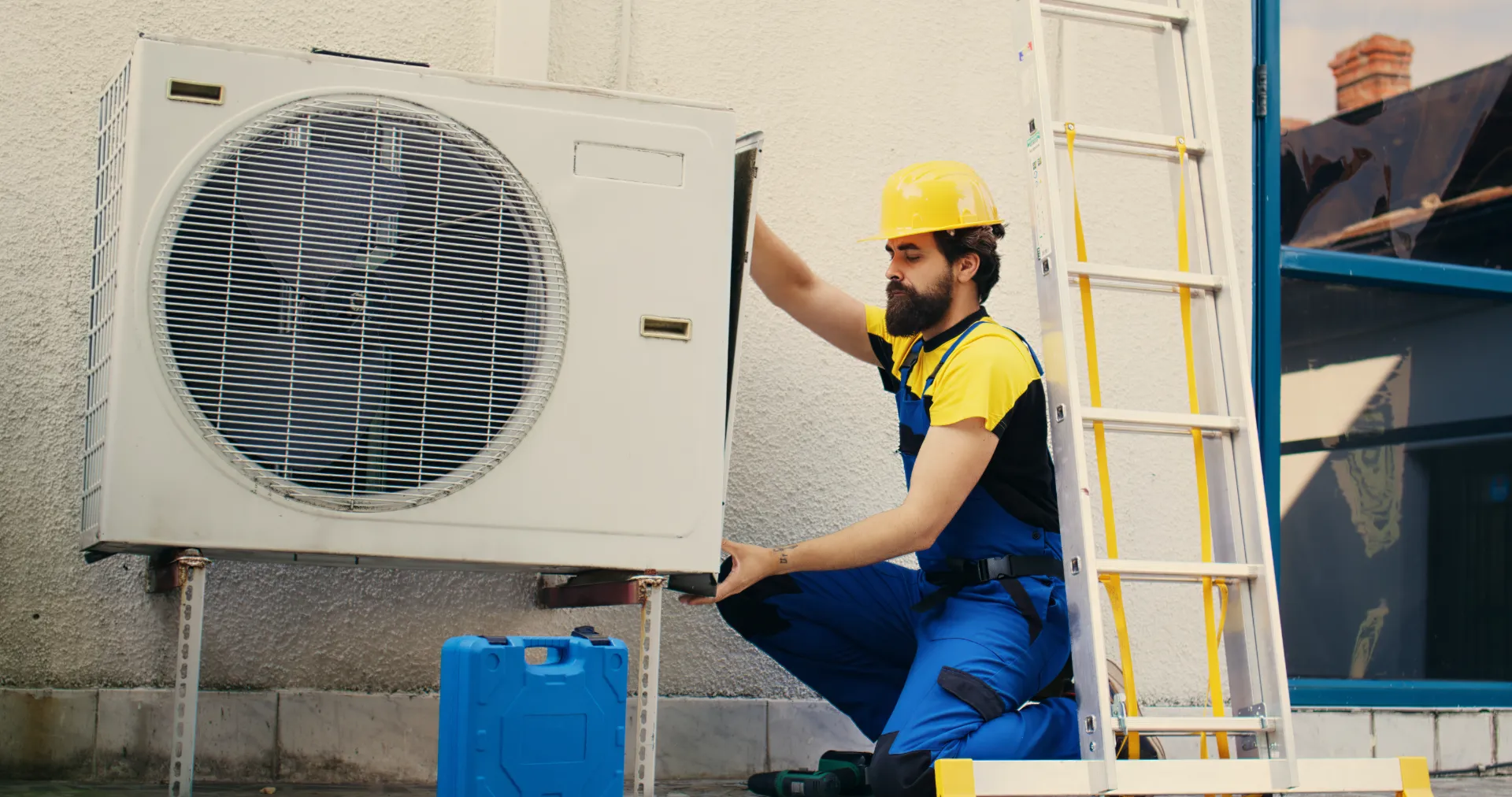
An HVAC system includes several parts that work together to keep your indoor environment comfortable. These components typically include a furnace or heat pump, an air conditioner, ductwork, vents, and a thermostat.
The furnace or heat pump provides heat, while the air conditioner cools the indoor air. The ductwork acts as a pathway for the conditioned air to travel throughout the house, and the vents distribute the air into individual rooms. The thermostat, on the other hand, serves as the control center, allowing you to set the desired temperature and regulate the system's operation.
Each component plays a crucial role in the overall functionality of the HVAC system. Without any one of these components, the system would not be able to effectively heat or cool your home.
HVAC systems utilize a combination of heating, ventilation, and air conditioning techniques to regulate the temperature, humidity, and air quality in your home. They rely on a network of ducts to distribute heated or cooled air throughout your living space.
When the system is in heating mode, the furnace or heat pump extracts heat from a fuel source, such as natural gas or electricity, and transfers it to the air. The heated air travels through the ducts and flows into each room through the vents.
In cooling mode, the air conditioner pulls heat from inside your home and pushes it outdoors, leaving the air cooler. This cool air is then distributed through the ductwork and released into the rooms, providing a refreshing and comfortable environment.
Good ventilation is a key part of any HVAC system. It ensures the exchange of stale indoor air with fresh outdoor air, improving indoor air quality. Ventilation systems can also help remove odors, excess moisture, and airborne pollutants, creating a healthier living environment.
Overall, HVAC systems are designed to create a comfortable and healthy indoor environment by regulating temperature, humidity, and air quality. They are essential for maintaining a pleasant living space throughout the year, regardless of the weather conditions outside.
Maintenance is often overlooked but is key to keeping your HVAC system running efficiently and avoiding unexpected breakdowns. Regular maintenance not only enhances the efficiency of your system but also prolongs its lifespan.
When it comes to HVAC systems, regular maintenance is crucial for optimal performance. By neglecting maintenance tasks, you risk compromising the efficiency and functionality of your system. However, by prioritizing regular maintenance, you can ensure that your HVAC system operates at its best, providing you with consistent comfort and peace of mind.
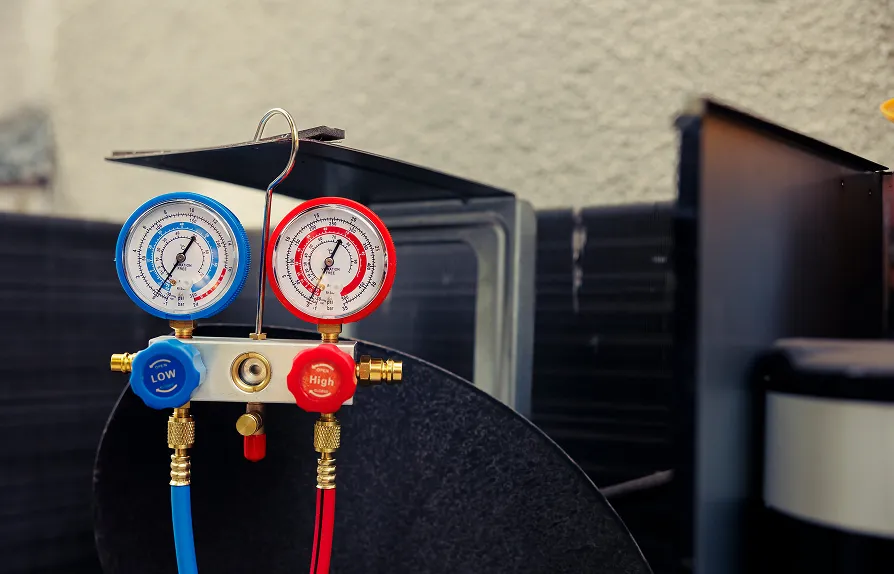
Regular maintenance tasks such as cleaning or changing air filters, lubricating moving parts, and checking refrigerant levels can improve the efficiency of your HVAC system. Dirty air filters block airflow, making your HVAC system work harder to keep the temperature stable. Cleaning or replacing filters regularly helps maintain airflow, eases the load on the system, and boosts efficiency.
In addition to air filters, lubricating moving parts is another essential maintenance task. Over time, these parts can become dry and worn, leading to increased friction and decreased efficiency. By applying lubrication, you reduce friction and ensure smooth operation, allowing your system to run more efficiently.
Checking refrigerant levels is also crucial for system efficiency. Insufficient refrigerant can lead to poor cooling performance and increased energy consumption. By regularly monitoring and maintaining proper refrigerant levels, you can optimize your system's cooling capacity and minimize energy waste.
Routine maintenance is key to ensuring your HVAC system performs efficiently and lasts longer. Here’s how regular professional check-ups can benefit your system and your home:
Investing in regular HVAC maintenance not only protects your system but also improves comfort, air quality, and energy efficiency in your home. It’s a smart step toward long-term reliability and healthier living.
When it comes to HVAC installation, it's essential to choose the right system for your home and understand the steps involved in the process.
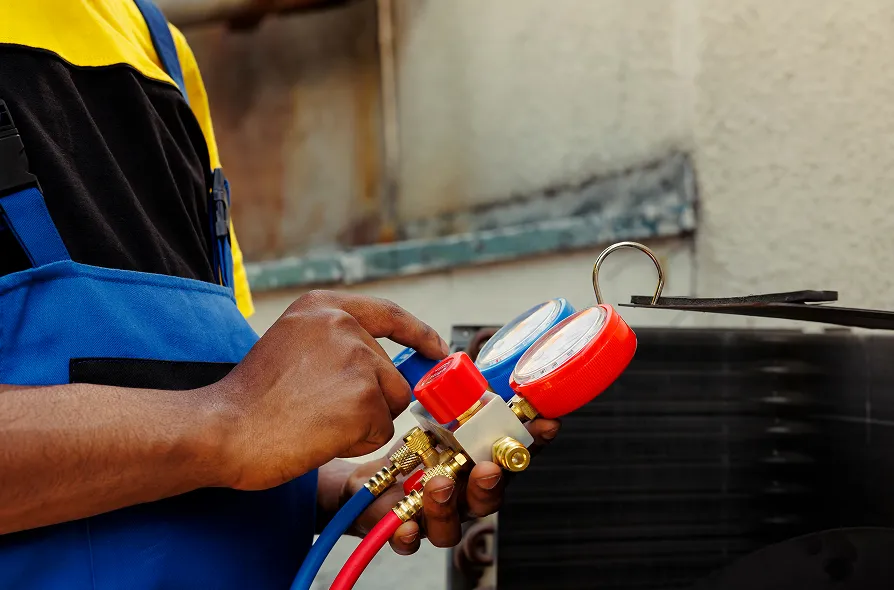
Selecting the appropriate HVAC system requires considering factors such as the size of your home, your specific heating and cooling needs, energy efficiency ratings, and your budget.
Installing an HVAC system usually includes steps like preparing the site, setting up equipment, installing ductwork, making electrical connections, and testing the system. It is crucial to hire a qualified HVAC contractor who can efficiently and safely complete each of these steps.
Even with regular maintenance, HVAC systems can encounter common issues. Understanding how to identify these problems and knowing when to call a professional is vital.
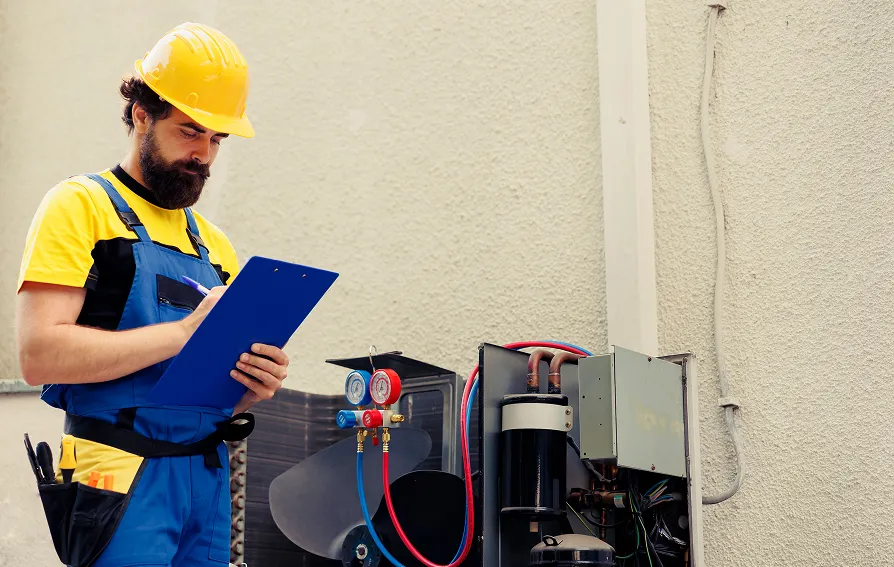
Common HVAC problems include unusual noises, weak airflow, uneven temperature distribution, frequent cycling, and a noticeable increase in energy bills. These issues may indicate problems with components such as the compressor, blower motor, or thermostat.
While some minor HVAC issues can be resolved independently, many problems require the expertise of a qualified HVAC technician. It is recommended to contact a professional if you encounter complex issues or if your system fails to perform optimally despite proper maintenance.
When it comes to HVAC repairs, there are various types of services available, depending on the specific issue you are facing.
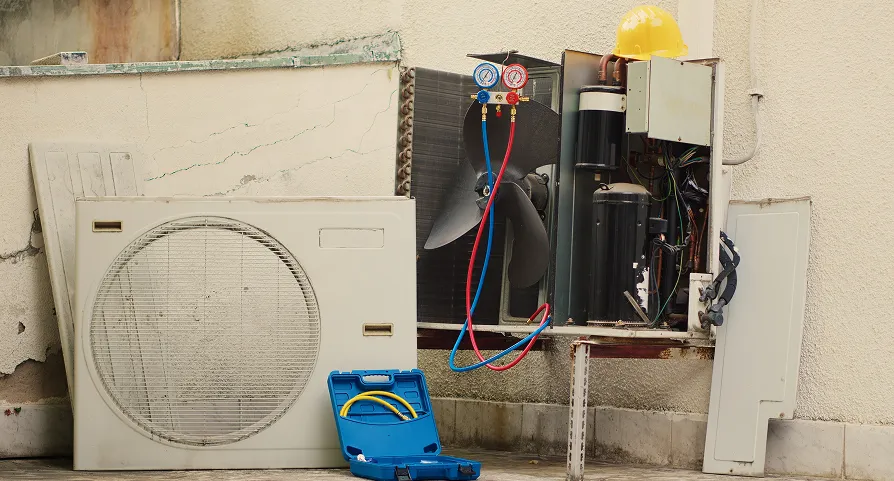
HVAC repair services encompass a wide range of tasks, such as fixing refrigerant leaks, repairing or replacing faulty components, addressing electrical issues, unclogging ductwork, and restoring proper airflow. It is essential to hire a reputable HVAC company that specializes in the specific type of repair you require.
Upon scheduling HVAC repair services, a technician will conduct a thorough inspection to diagnose the issue. They will then provide you with a detailed explanation of the problem and the necessary repairs. Once the repair process is complete, the technician will test your system to ensure it is working correctly.
Determining whether to install a new HVAC system or repair an existing one requires careful consideration of cost, efficiency, and long-term value.
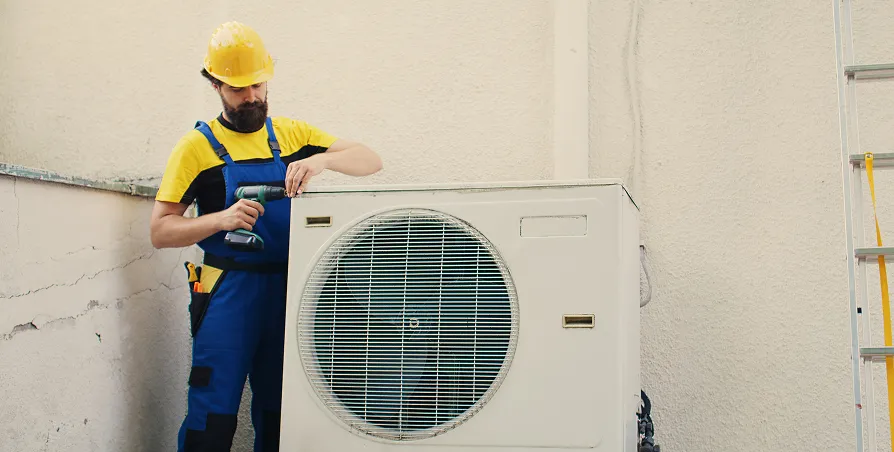
Installing a new HVAC system is a major financial decision. The average cost ranges from $5,000 to $10,000, depending on the size of your home, the type of system selected, and any necessary modifications or upgrades.
Repair expenses depend on the type and severity of the issue. Minor repairs may cost around $100, while more extensive repairs can range from $500 to $2,000 or higher.
Evaluate the condition of your current system by considering:
If your current HVAC system is outdated or frequently breaks down, a new, energy-efficient model may be more economical over time. A modern system can reduce energy bills and improve comfort and performance.
In conclusion, understanding the basics of HVAC systems, the importance of regular maintenance, and the process of installation and repair are crucial in ensuring the comfort and efficiency of your home. By choosing reputable HVAC professionals, identifying and addressing issues promptly, and weighing the cost-effectiveness of repair versus replacement, you can enjoy a well-functioning HVAC system and a cozy living environment all year round.
Join our mailing list for exclusive updates, expert tips, and special offers tailored to your needs. Be the first to know about the latest in home services.


Renovize Home is a platform that supports homeowners from planning to renovation. Whether it’s Renovize AI for guidance or a one-on-one call with Pro Finder, we understand your project and match you with local contractors tailored to your needs.
Who We Are
About Renovize HomeGet in TouchHomeonwer Support:
Coming Soon!
General Inquiries:
support@renovizehome.com
Head Office:
24 Greenway Plaza, STE 1800M, Houston, TX 77046.